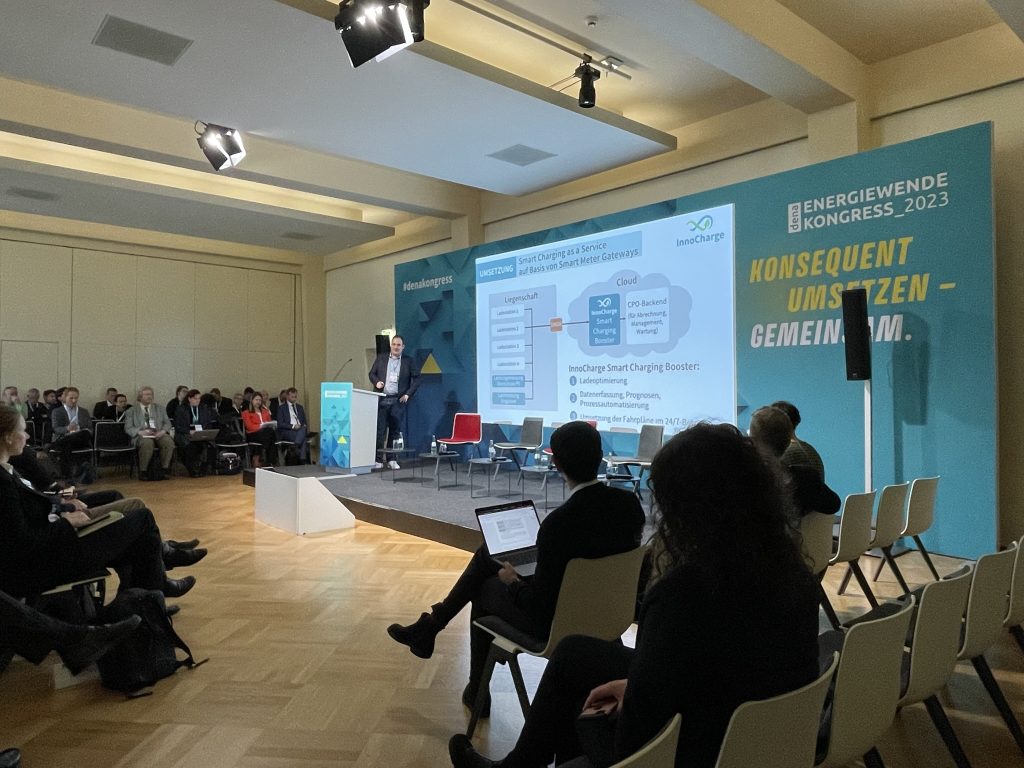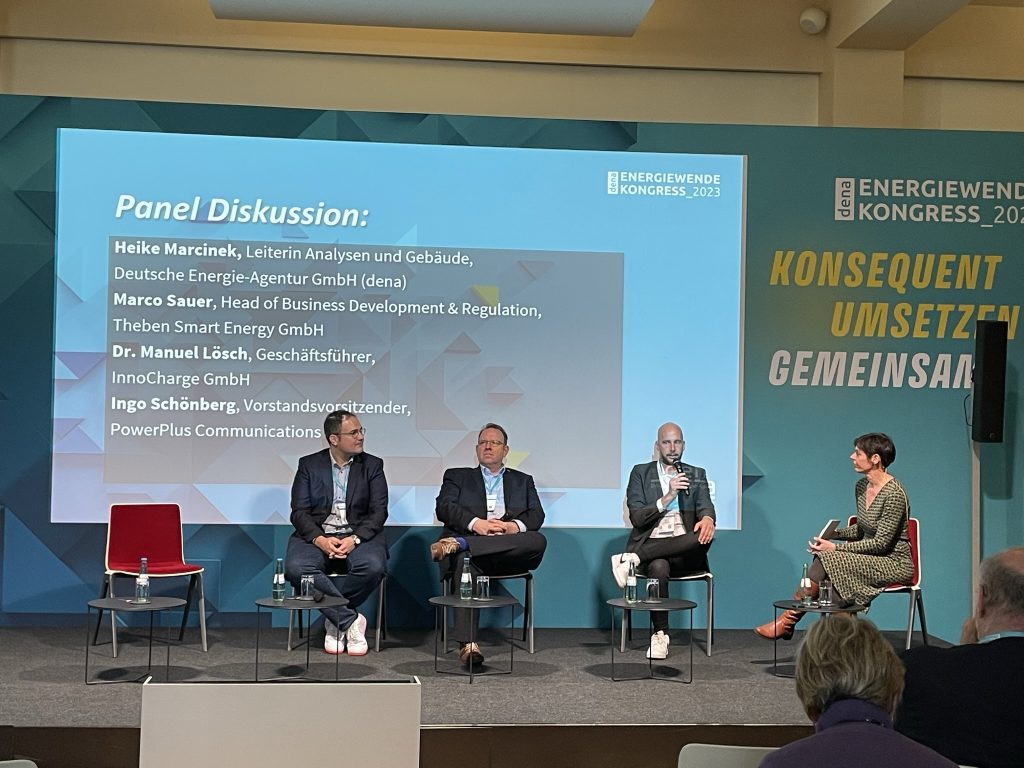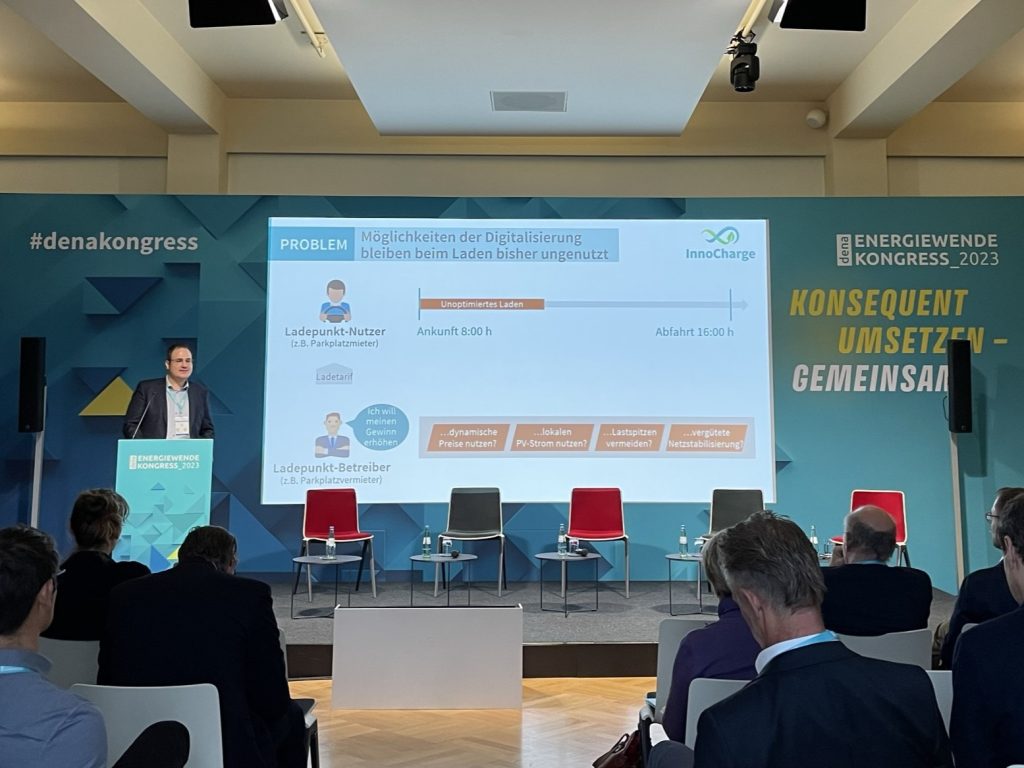On November 13 and 14, 2023, the dena Energy Transition Congress took place in Berlin with over 1,200 top-class participants from politics, business, science and research. The focus was on the integrated energy transition, climate protection and achieving our climate targets. InnoCharge was invited on stage as part of two panel discussions on the future of energy.
For InnoCharge as a smart charging service provider for Charge Point Operators, one thing is clear: the regulatory framework and the infrastructure for market- and grid-oriented control in the low voltage grid is in place, there is always room for improvement, but for the next expansion stage of the energy transition it is now a matter of convincing end customers with the clearly available added value.



The focus of the two contributions by InnoCharge CEO Dr. Manuel Lösch was on the now necessary step in digitalization “from innovation to broad impact”:
- In the Deep Dive Panel “Smart meters for variable electricity tariffs“, the discussion with Ingo Schönberg (CEO, PPC Power Plus Communications AG) and Marco Sauer (Head of Business Development & Regulation, Theben Smart Energy GmbH) focused on the current status of control via Smart Meter Gateways (SMGW) and the next steps for real added value for customers. A presentation on the market- and grid-oriented InnoCharge charging optimization, which opens up several value creation options simultaneously and enables a high degree of scalability on the basis of standardized “smart metering systems”, formed the basis and introduction to the discussion.
- The final panel “Active together: Energy users as shapers of the energy transition“, together with Dr. Severin Beucker (founder of the Borderstep Institute) and Prof. Dr. Lynn Kaack (Hertie School Berlin), dealt with best practice examples and the role of politics and artificial intelligence in achieving our climate targets. The forecast-based InnoCharge charging optimization ensures that Charge Point Operators can charge fully automatically at low electricity prices when the sun and wind are providing cheap electricity for electric vehicles. The InnoCharge optimization based on marginal-cost-free renewable energies not only reduces charging costs, but also reduces the need for CO2-emitting coal and gas power, and enables the use of valuable e-vehicle batteries for the remunerated provision of increasingly valuable energy system services.

